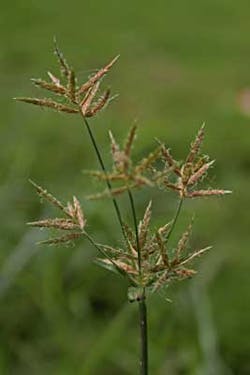How weeds may have helped prevent tooth decay in ancient people
A recent study published in the journal PLOS ONE spoke of a new scientific analysis of skeletons of ancient people living in Sudan 2,000 years ago. The people were eating a tuber known as purple nutsedge – one of the world’s worst weeds – and not giving it a second thought. This nasty weed is highly resistant to herbicides and spreads underground as if on a mission, yet it has been shown to slow the growth of bacteria widely implicated in tooth decay. When scientists delved deeper into their study of ancient life, they found that the early human population generally had relatively few cavities, partially due to the fact that their diet was light on carbs and heavier on meat. The antibacterial properties of the nutsedge may also have had a hand in helping boost the oral health of the people; much is still unknown.
ADDITIONAL READING |CAMBRA and caries detection technology
Further back ... thousands of years ago – 8,700, to be exact – even before farming, analysis shows that ancient people in Sudan likewise consumed purple nutsedge, probably as food. Researchers speculate that the weed could have served as both a nutritious meal and a primitive antibacterial medicine. They surmise that since medicine doesn’t usually taste good, the bitter-tasting weed would indeed fit the bill.
Summed up, just like today, what we eat has a definite effect on our oral health.
READ THE ABSTRACT |“Dental calculus reveals unique insights into food items, cooking, and plant processing in prehistoric Central Sudan”
Read more from National Geographic Daily News |“Ancient people achieved remarkably clean teeth with noxious weed?”
ALSO BY VICKI CHEESEMAN …
Streptococcus mutans has accelerated a change in its genetic material over time, possibly coinciding with dietary change
New study reveals periodontal disease pathogen Porphyromonas gingivalis associated with increased risk of atherosclerosis
Could stress be linked to periodontal disease?
About the Author
Vicki Cheeseman
Associate Editor
Vicki Cheeseman is an associate editor in Endeavor Business Media’s Dental Group. She edits for Dental Economics, RDH, DentistryIQ, and Perio-Implant Advisory. She has a BS in mathematics and a minor in computer science. Early on she traded numbers for words and has been happy ever since. Vicki began her career with Dental Economics in 1987 and has been fascinated with how much media production has changed through the years, yet editorial integrity remains the goal. In her spare time, you’ll find her curled up with a book—editor by day, reader always.


